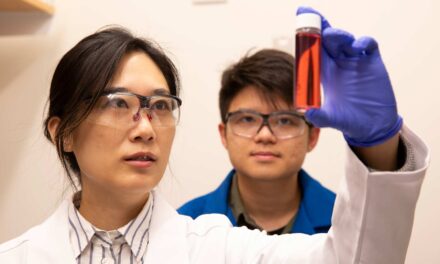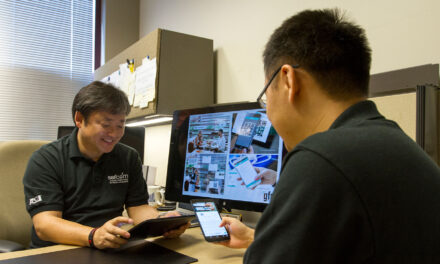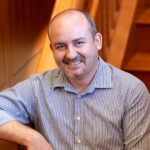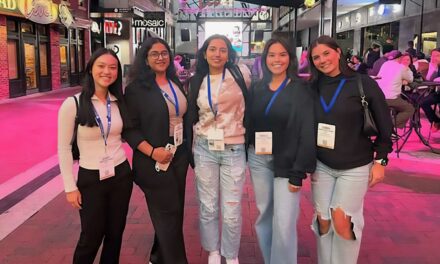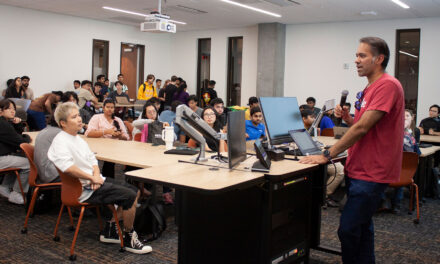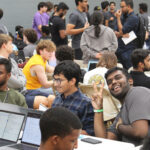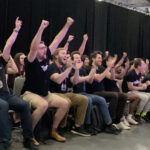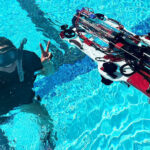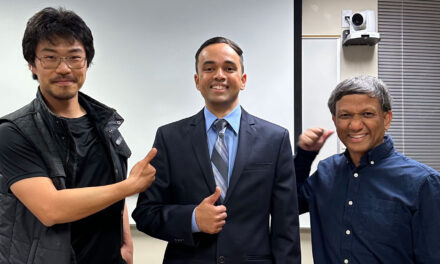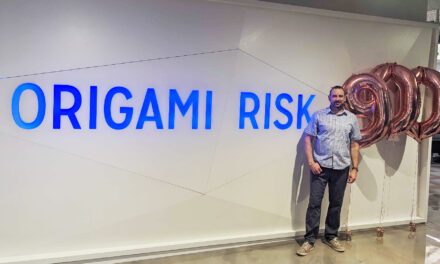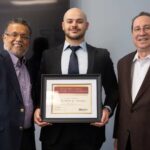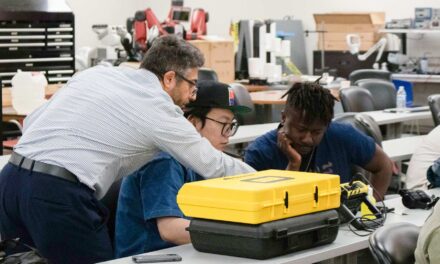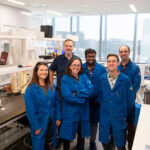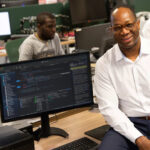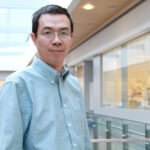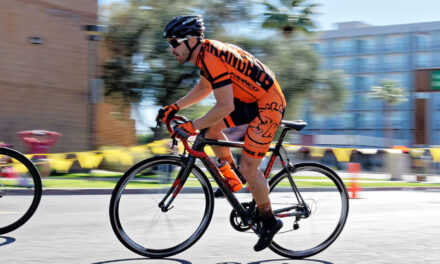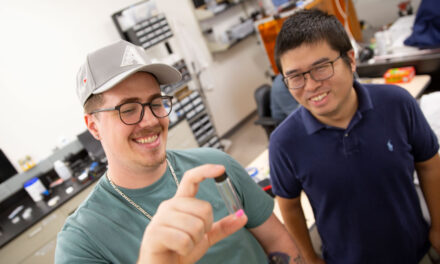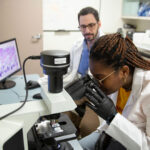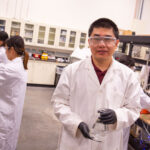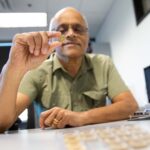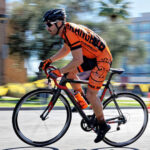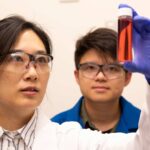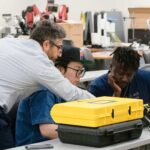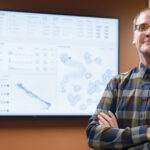
Ingenuity in teaching, research and leadership earns top honor
Two engineering faculty members have for the first time in the same year been named ASU President's Professors — one of the most prestigious titles bestowed by the university
Two Ira A. Fulton Schools of Engineering faculty members were among those named 2022 President’s Professors by Arizona State University President Michael Crow. Andréa Richa, a professor in the School of Computing and Augmented Intelligence and Thomas Sugar, a professor in The Polytechnic School, two of the seven Fulton Schools, were acknowledged for their enthusiasm and innovation in teaching, the ability to inspire original and creative work by students, mastery of subject matter and scholarly contributions.
Richa’s and Sugar’s trailblazing teaching and research efforts in two growing areas of engineering are generating national attention through earning various awards and work on economic development initiatives.
A champion of diversity in computer science
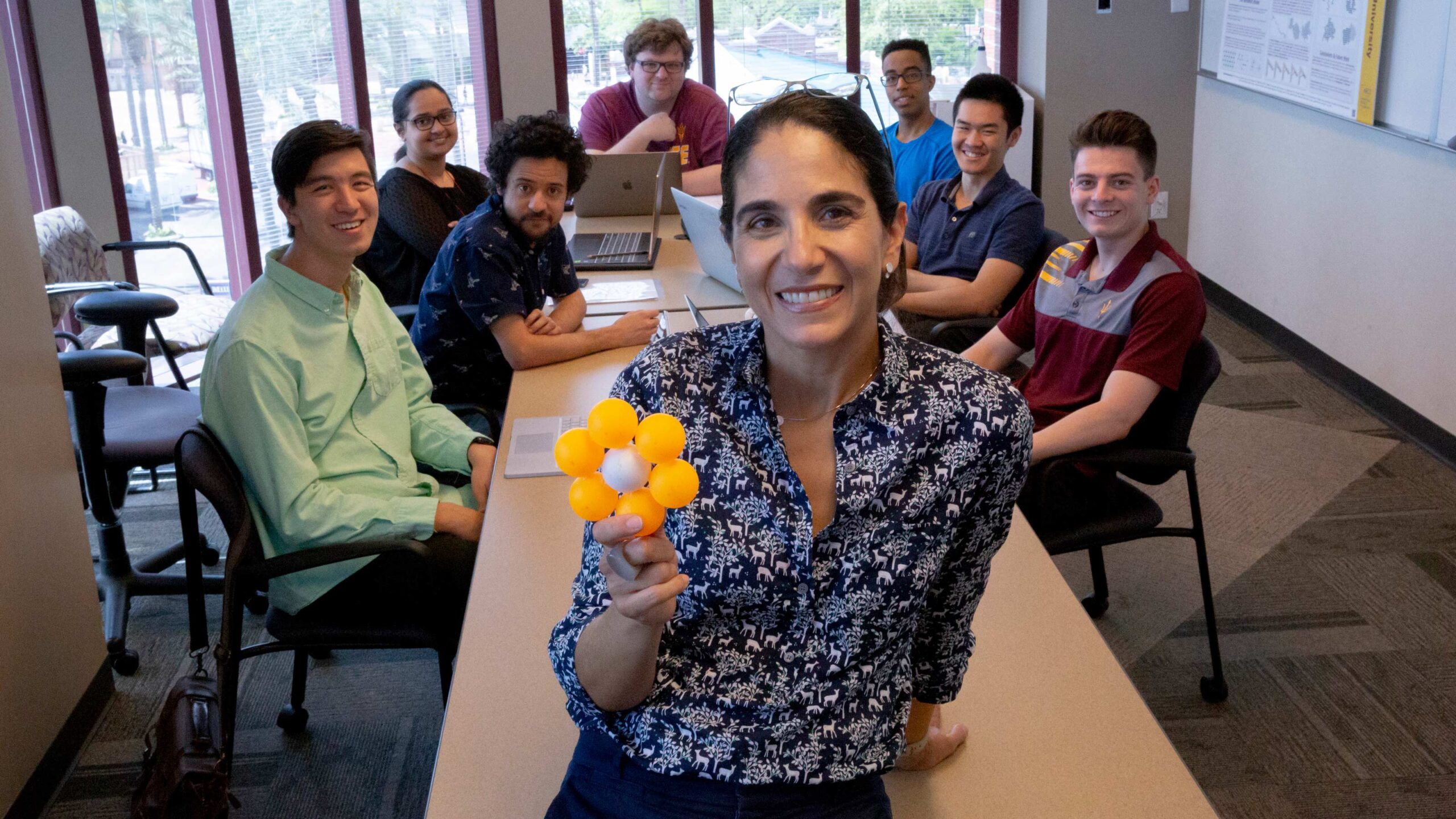
Andréa Richa, a President’s Professor of computer science, and her lab students pictured in the Self-Organizing Particle Systems Laboratory after receiving a Department of Defense Multidisciplinary University Research Initiatives, or MURI, award. Photographer: Erika Gronek/ASU
Growing up in Brazil, Richa had an affinity for math and science at an early age, which led her to focus on computer science at the Federal University of Rio de Janeiro.
Her studies then took her to Carnegie Mellon University in Pittsburgh, Pennsylvania, where she completed her master’s and doctoral degrees in computer science. Shortly after, in 1998, she joined ASU as an assistant professor of computer science.
“I am humbled to receive this award,” Richa says. “I’m grateful for the nominations and support from the School of Computing and Augmented Intelligence, the Fulton Schools, the Biodesign Center for Biocomputing, Security and Society, and, last but not least, my outstanding students. This strong foundation has allowed me to dream big and fulfill my goals.”
At ASU, she is part of the Fulton Schools Diversity and Inclusion Initiative task force as well as ASU’s Full Professors of Color cohort, formed to address the process of promotion of faculty members of color and underrepresented groups. Being one of the few women in her profession, Richa prioritizes diversity and inclusion in all of her endeavors involving students and faculty.
“In the U.S. only 18% of computer science students are female and only 10% of the faculty are female,” says Richa, who is one of only two women who are full professors in the computer science program. “So, it’s important for me to address these stats and be proactive by serving as a role model for other underrepresented students and faculty.”
Richa’s lab, the Self-Organizing Particle Systems Laboratory, thrives by including students from various academic levels — from high school students to doctoral students and all levels in between.
“The wealth of knowledge and experience among this diverse group of students is in line with ASU’s charter of diversity, inclusiveness and interdisciplinarity,” she says.
Richa, who is also a National Science Foundation CAREER recipient and 2021 ASU Faculty Women’s Association Outstanding Faculty Mentor, believes that encouraging various age groups to work together is an impactful teaching strategy and it has led her to develop a mentorship program in her research lab.
She mentors her doctoral students, who then mentor her undergraduate students, who in turn mentor her high school students, and the cycle continues. Richa says this is “real mentoring and it’s happening at all levels of the group.”
One of Richa’s former doctoral students and now-colleague, Joshua Daymude, said in his nomination letter, “She practices generous inclusivity with her students and academic community, teaches with empathy and clarity, and tackles challenging problems with rigor. Few other professors can embody the same degree of professional accomplishment, research expertise and care for those around them.”
Working effectively with various age groups has led Richa to become a proponent of undergraduate research. Many of her students publish research papers and go on to continue working in her lab as graduate students or join labs at other prestigious graduate schools.
She and her students are currently focusing on the use of algorithms to program matter and nanosensors — abstractly modeled as self-organizing particle systems — to collectively complete a task for various applications in human health, engineering and other industries. This concept is inspired by nature, such as ant and bee colonies that innately and collectively behave and work toward a common goal.
Richa is exploring the potential of self-organizing particle systems through an NSF award from the Algorithmic Foundation and a Department of Defense Multidisciplinary University Research Initiatives, or MURI, award.
“With this technology we could theoretically have a cancer patient swallow nanosensors no bigger than red blood cells that are programmed to locate and isolate a tumor for more localized treatment,” Richa says. “Or, throw some nanosensors into a leaking nuclear reactor instead of sending humans in and program them to self-organize, find the leak and block it temporarily.”
There is high potential for Richa’s research to produce valuable discoveries, and she says she is grateful for the funding she has received that is enabling her to pursue her passion for work in a technical field that is very theoretical.
A pioneer of engineering curriculum and workforce development
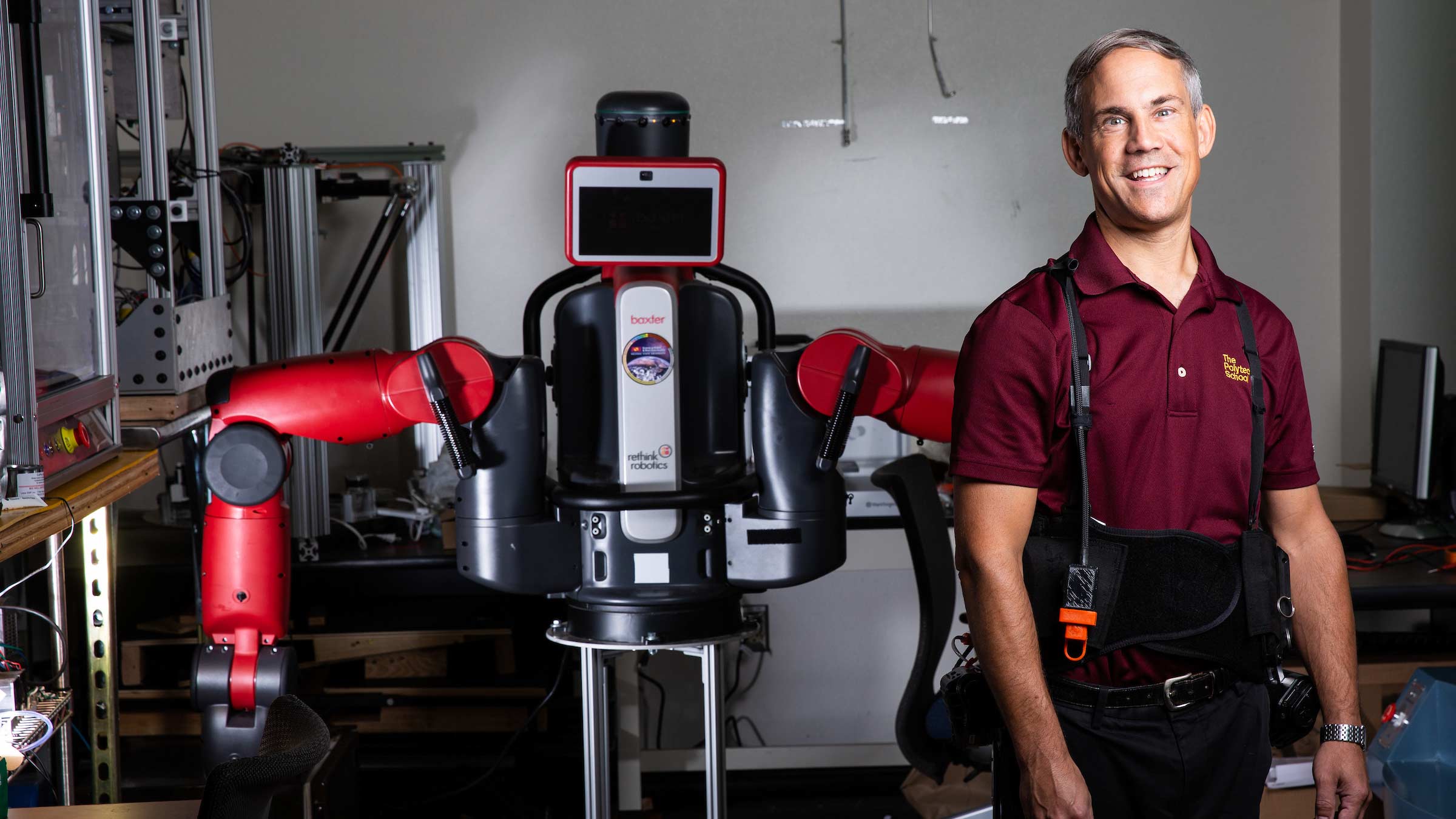
Thomas Sugar poses for a portrait in his lab on July 20th, 2018. Sugar works on mobile robot navigation and wearable robotics for the rehabilitation of stroke patients. Photo by Deanna Delp/ASU
Sugar’s long history of success at ASU began in 1999 in the mechanical and aerospace engineering department as an assistant professor of mechanical design.
He says that receiving the President’s Professor honor is a culmination of a lot of hard work over the course of many years.
“It’s saying, you’re respected and you’ve excelled in teaching, mentoring and research, and your work in building the Polytechnic campus made an impact,” says Sugar, who is also an associate dean of ASU’s Barrett, The Honors College.
Sugar was one of the founding faculty members of the engineering program at ASU’s Polytechnic campus, having built the mechanical systems engineering program from the ground up. He also helped to start the robotics concentration at what is now The Polytechnic School in 2010 and a master’s degree program in robotics and autonomous systems in 2018.
“We wanted to build an engineering program focusing on novel ways of teaching, hands-on curriculum, interdisciplinary opportunities and flipped classrooms in hopes it would enhance the learning experience and appeal to a wider variety of students,” Sugar says.
These concepts became a reality and have passed the test of time to become highly valued at The Polytechnic School. Strong industry collaborations on student engineering capstone projects, state-of-the-art equipment available for hands-on use, and the presence of lab instructors and various other real-world integrations have become the norm.
“I am really proud of the academic progression we were able to make at The Polytechnic School, and these ideologies really set the stage for the entire campus,” Sugar says.
Sugar’s background in robotics has impressed the Fulton Schools Vice Dean of Strategic Advancement Ann McKenna. She says Sugar’s expertise has enhanced his mission to empower students to take risks and build the foundation for impactful careers as engineers.
“Tom has been a positive and steadfast presence on the Polytechnic campus. He has a unique ability in developing technological results that have an immediate impact on people and society. We are fortunate to have Tom as a faculty member and I am honored to have him as a colleague and friend,” McKenna says.
In his courses, Sugar prioritizes real-world curriculum by bringing sensors, microprocessors and other engineering devices into the classroom. “When students can collect data and model it using real-world examples, there’s a lot more to learn,” he says.
More than 20 years after integrating robotics and autonomous systems into The Polytechnic School curriculum, it has become a highly sought-after field positioned at the center of the AZNext initiative — an Arizona Department of Labor grant supporting workforce development in the growing field of advanced manufacturing.
Sugar is actively involved in implementing this initiative and says that the goal is to train and upskill unemployed workers, employed workers and students, providing a new pathway and learning enterprise for lifelong education in robotics, automation and advanced manufacturing.
His initial interest in this field led him to launch the Human Machine Integration Laboratory in 1999. Sugar eventually moved the lab to the ASU Polytechnic campus. Currently, his research focuses on robotic orthoses, prostheses and wearable robotics for enhanced human mobility.
Success in these areas has opened many research doors for Sugar, who recently created a wearable exoskeleton offering increased lifting and pushing support for U.S. Air Force aerial porters who have a high incidence of musculoskeletal injuries from lifting heavy cargo.
Sugar is working with Mayo Clinic on developing a wearable exoskeleton to help restore shoulder movement in shoulder surgery patients.
He is also working with Fulton Schools Assistant Professors Heni Ben Amor, Daniel Aukes, Hyunglae Lee and Wenlong Zhang on foldable robotics using embedded electronics, predictive controls and mechanical designs to create comfortable, wearable robotic devices called exoshells to improve mobility in older adults.
In addition to his research ventures and engineering program efforts, Sugar hopes to leverage the President’s Professor award to curate growth, opportunities and learning experiences for all students at the Polytechnic campus and students in ASU’s Barrett, The Honors College.
Andréa Richa and Thomas Sugar are the fifth and sixth Fulton Schools faculty members to be named an ASU President’s Professor, joining James Adams, Braden Allenby, Mark Henderson and Keith Hjelmstad in this elite group.


